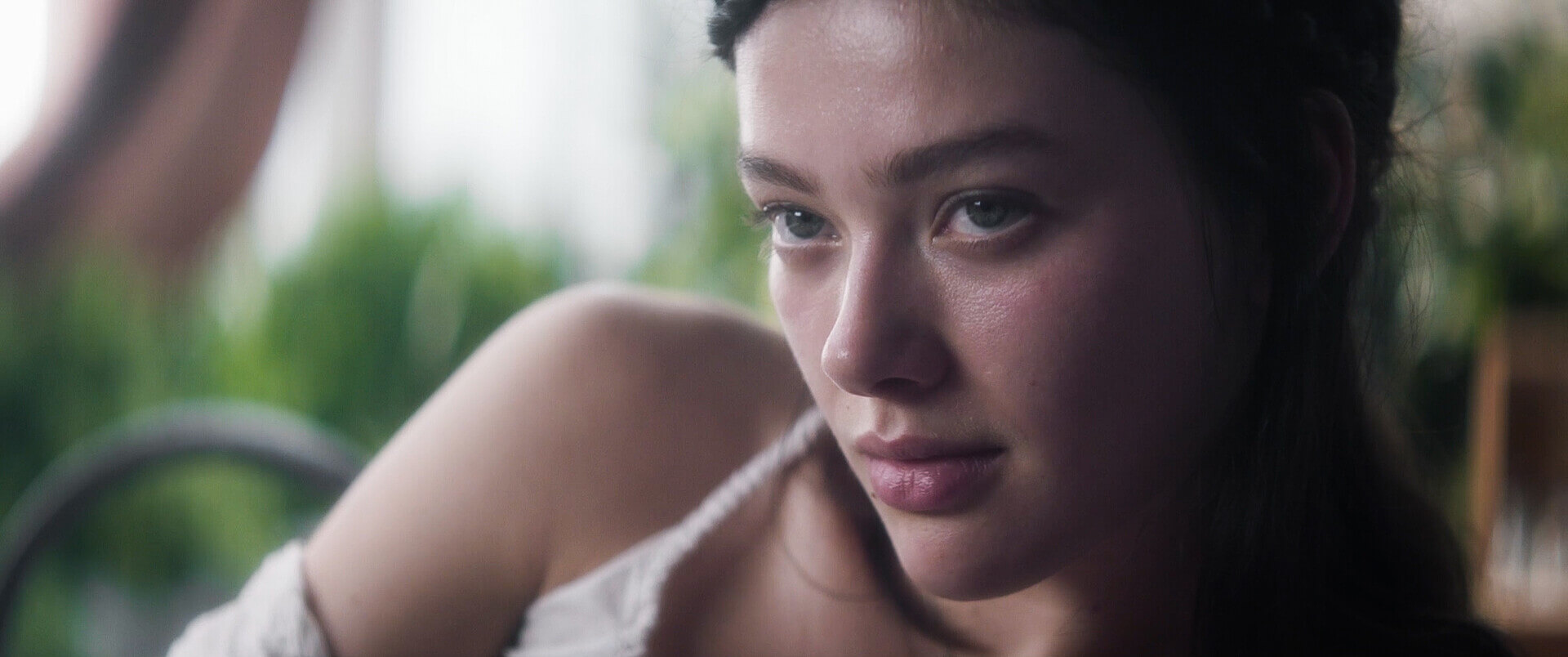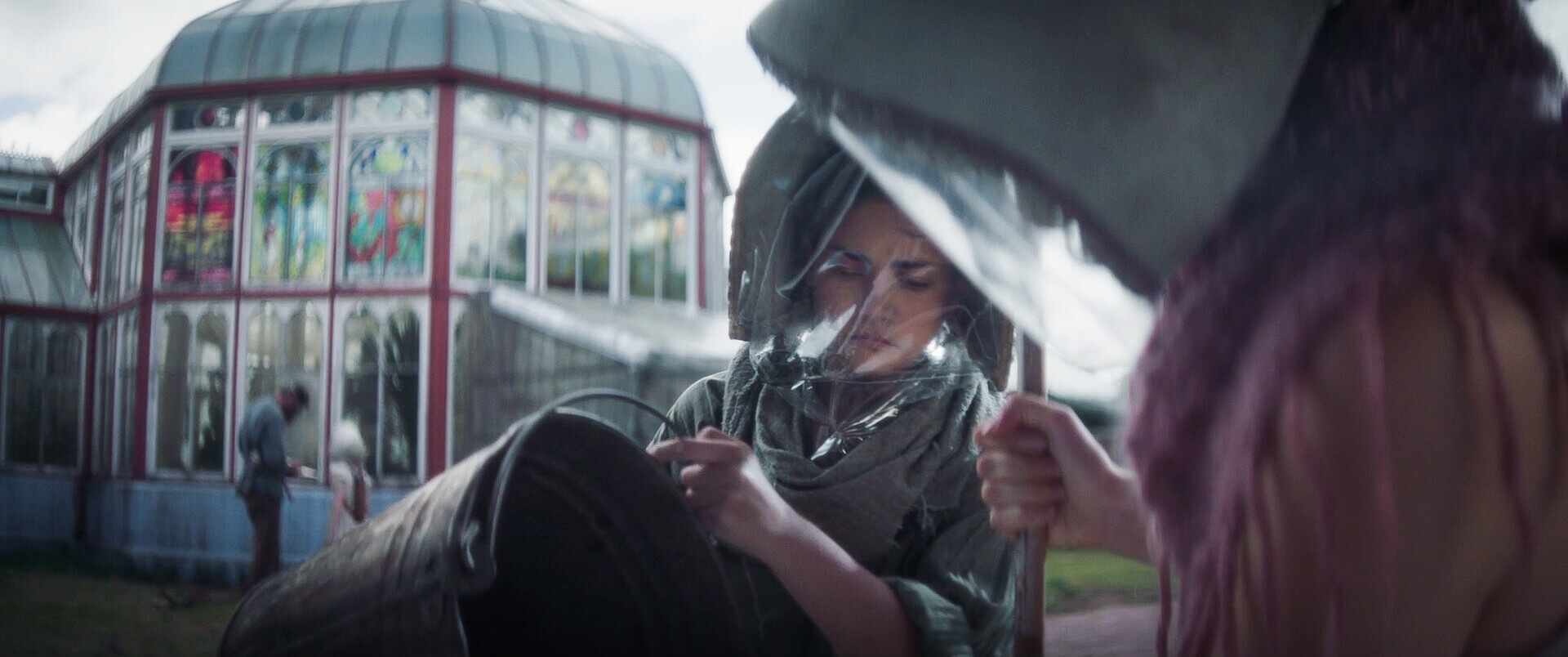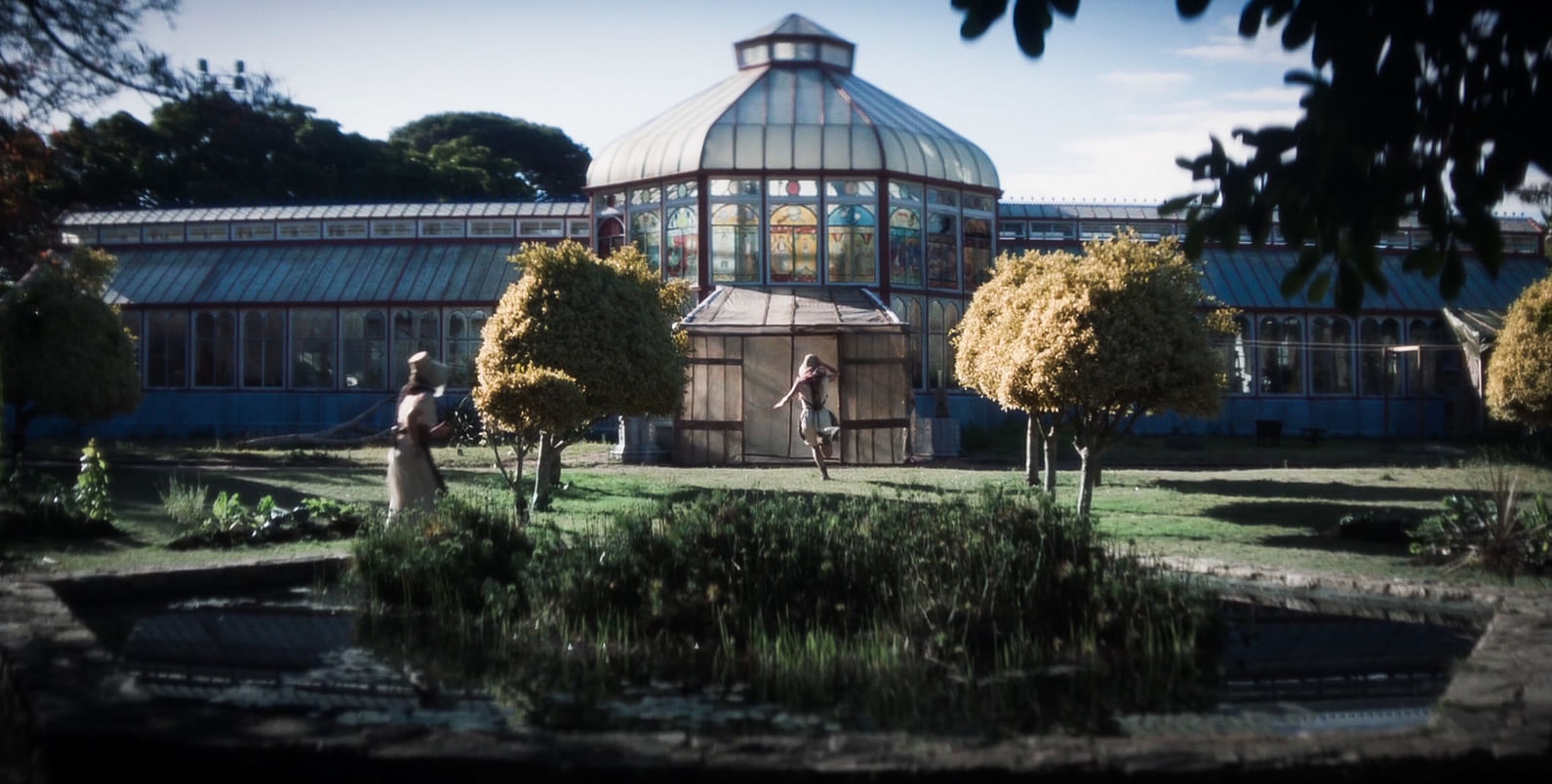There's drama on the prairie in the retro-futuristic Glasshouse, which attempts to take advantage of your familiarity with deadly viruses to serve up a steamy, enervated, sci-fi erotic thriller. But it's not as interesting as that sounds. Instead, the film is pressed to fill its runtime, leaving us to blather about with these characters we don't understand as they play out a rather tepid back-and-forth between the status quo and the intoxicating allure of conflicting information.

A Flimsy Facade: Glasshouse's insistence on world-building is muted and hardly impactful; it injects contemporary pandemic themes into a sci-fi setting, but that's not to say the film is attempting to make a statement reflective on the times. Rather, it's a superfluous choice that drives what masquerades as the central conflict — the inability of these characters to breathe the outside air. The film doesn't spend enough time developing differences between its two female leads. For as much as this is a 'talky' drama, there aren't many morality battles fought in a way that makes us understand the characters. The film appears to have already made up its mind, which turns the drama into melodrama.

Out Of Focus: Instead of playing up the bland sci-fi elements or pretending like The Shred is the most interesting device at play, Glasshouse would've better served to take its hushed eroticism and crank it up to eleven. It eventually gets there, but the dramatic context is lacking. The virus takes up too much of everyone's time. It's not faithful to the familial themes at play. Ideas of tradition and culture passed down from generation to generation are proven fragile and easy to upend with the arrival of someone unexpected. The way the lead characters sweat at the suggestion of temptation, yet that desire is what motivates them to break the rules, is the most affecting aspect of Glasshouse. You're waiting for the collective heat to start fogging up the windows. Running the camera's lens up and down their bodies as they grapple with these flesh-bound choices would have made for more of a hot-tone poem, given what transpires by the end.
Films like Glasshouse often prove how film can excel in the micro; it's not always about how complicated the world is around these characters, but how these contextual elements end up influencing their short-term decision making. That streak of lighting — developing a character's motivation with the challenges of acquiring it has about ninety minutes to be explored on-screen. Every new ideal ends up distracting and diluting from the film's first purpose of being. It's a balancing act that all filmmakers must undergo, and in Glasshouse, it makes for a dull, watered-down experience.

Watch Glasshouse
